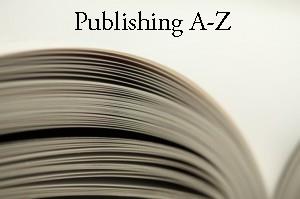Pray that it never happens to you. But if there is a situation where you find yourself in a legal battle with your publisher regarding your book contract, there are terms that will dictate how that disagreement is handled.
Here is one version from an old contract:
Any claim or dispute arising from or related to this Agreement shall be settled by mediation and, if necessary, legally binding arbitration in accordance with the rules of a mutually agreed upon alternative dispute resolution service. Judgment upon an arbitration decision may be entered in any court otherwise having jurisdiction. The parties agree that these methods shall be the sole remedy for any controversy or claim arising out of this Agreement and expressly waive their right to file a lawsuit in any civil court against one another for such disputes, except to enforce an arbitration decision.
Regardless of the place of its physical execution, this contract shall be interpreted under the laws of the State of XXXXXXXXXX and of the United States of America.
If you read this carefully, you’ll see it lays out the rules that keep a dispute out of the court system and forces the two parties to use binding arbitration instead.
Also note the second paragraph that dictates which state laws apply. We once had a publisher contract that had the laws of another country as the basis for the law. (It was a mistake by the publisher, a leftover from a previous contract they had reused.) The location for the state law is usually the location of the company that issues the contract, and is often nonnegotiable. Some contracts also dictate where arbitration will occur.
I’ve read stories of authors who got into a dispute and yet they had signed a contract that prevented them from pursuing legal options. Note that arbitration isn’t a bad thing, so don’t misunderstand this example as being something terrible.
If your contract does not have a dispute resolution clause, I’d recommend you have one inserted–just in case. A contract is there to determine the responsibility of each party; otherwise it is a form of a handshake, which can cause problems. (See this story of a handshake gone bad.)






I once had a publisher
and thought I was in clover.
Didn’t know they were a welsher,
and now the party’s over.
Kinda sorta worried;
books sold, I wasn’t paid.
Some other issues hurried
that one to the shade,
but other writers took it up,
for they were burned bad too;
the pub house drank the hemlock cup
and vanished in the blue,
but my rights returned to me,
and so I call it victory.
Wow, good information. Thank you. I looked over the contract again, and my MS is supposed to go through the publisher before the contract. What is concerning as of today: the publisher accepts now accepts without reading the MS because I have my first MS already done and on the shelf. The second novel, I sent everything including the first three chapters — this MS is gritty combat/military/intrigue. To bypass that step of reading and potentially rejecting the MS should be honored.
The second thing missing is that their editor is freelance but edits many of their works including serial killer books, etc. She has no problem with the hard combat scenes. Now the publisher reads it at the last. That’s when it will be rejected and that’s been a good two months (longer this year because I came down with covid and she had an injury) after the editor. Should I ask if I am therefore required to pay the editor out of pocket since it’s not stated in the contract, the editor is a 1099 employee?
yikes makes me a wee bit nervous. Should I hire an entertainment lawyer for 20% to check the contract, or an agent?
thank you for the info…
Claire,
It is wise to talk with the publisher if you have contractual questions before signing. Getting an attorney involved is escalating the discussion without reason at this stage.
It is not unusual for a second book to be contracted without as much vetting in-house because the publisher knows you and trusts you.
If your manuscript has deviated dramatically from the content in your previous books you need to talk with the publisher so they know what they are getting and contracting. Otherwise it is your fault for turning in something they didn’t expect to receive.
Thanks, Steve. I did tell her with the submission that it was a very gritty combat MS but I think I shall do so right now.
Thanks again –
C
This is insightful – thank you, Steve! My knowledge surrounding contractual agreements with a publishing house is limited, so I always appreciate your posts that provide information we should be aware of as authors.
Interesting info. Thank you, Steve! I love this series as I am learning so many new things.
Very interesting. Looks almost identical to a clause in our creative services contracts.
These more technical posts are really helpful.
My book ‘Shadows over the Sun was published by Author Reputation Press
in October 2020.
The book had great publicity (Book Trailer, Interview on National American Radio with Ric Bratton and listing on social media).
The Company stopped communicating after the Interview, never reported sales nor paid royalties.
I had to buy my books on Amazon.
I sent a reviewed review to BBB but no action was taken.
Is there any way to force the publisher to report sales?
Thank you.